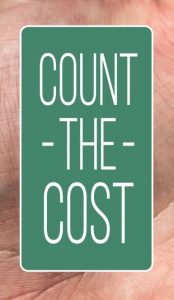Yet Another Year of Choices
By Barbara Dahlgren

We all make hundreds of decisions every day. Some are life changing; some are not. Yet each decision helps mold who we are as individuals. Each day we decide what we will wear, what we will eat, where we will go, what we will do, how we will spend our time, what we will say, where we will work, who we will be with, and so on. A simple life is easier to manage, but most of us do not lead simple lives. We live complicated lives filled with endless options. The more options we have, the harder it is to make wise decisions.
While what we decide to eat for lunch or wear to work may not need a list of pros and cons (although, some of us might benefit from doing that), other decisions take more thought and consideration. In those cases, it might be easier if we keep a few of the following principles in mind.
Pray about every decision. Bring concerns to God and ask Him to be actively involved in the decision making process. (Philippians 4:6-7) However, bear in mind that God’s major concern is not our comfort but that God be glorified, which should be our focus as well. (1 Corinthians 10:31)
To make wiser decisions we have to know about wisdom. A good start is reading the book of Proverbs which was written specifically for us to gain wisdom. (Proverbs 1:1-9) True wisdom comes from God. If we ask God for wisdom, He will give it to us. (James 1:5-8) However, God doesn’t play games. If we ask with a “double-mind” or not really wanting God’s wisdom, but asking Him out of a false sense of lip service, don’t expect much. God doesn’t just funnel wisdom into our minds. He expects us to do our part.
Seek wise counsel from those who are knowledgeable about the decision to be made. Seek counsel from those who can point out a spiritual perspective. Seek counsel from lives that could be affected by a decision, such as a spouse. Many fail because they have not taken the time to seek wise counsel. (Proverbs 11:14; Proverbs 12:15)
Heed the examples of others. The Bible is a history of those who made wise decisions and not-so-wise decisions. The world is full of such examples as well. However, many foolishly think they can make unwise decisions but it will turn out just fine for them – even though it didn’t turn out fine for anyone else. We tend to think we are the exception to the rule.

Count the cost. (Luke 14:28-30) Think of the long-term effects of a decision. Gather all the information. Get the facts. Don’t get caught up emotionally in a moment. Take your time. Good deals come and go all the time. We don’t need to buy now so we don’t miss the golden opportunity. Avoid making hasty decisions. Try listing options – pros and cons. We always have options. While it’s true some options might run the gambit from bad to worse, there are still options to be evaluated. Usually some option will stand out, but there will always be unclear concerns.
Calculate the risks. There are risks in every decision. I read recently about a man who asked a financial advisor if he should take his $3.5 million and use it for a business venture that could give him $25 million. The advisor said, “What can $25 million do for your family that $3.5 million can’t do? It’s too risky and jeopardizes your family’s security.” The man gambled and lost. His family was saddled with bankruptcy and debt. Even the benefits of a temporary gain could be offset by a permanent loss if risks aren’t considered. The Bible says, “What good is it if a man gains the whole world, but loses his soul?” (Matthew 16:26; Mark 8:36)
Consider this… Decisions aren’t always lumped into right and wrong. If they were, they would be easier to make. It helps to know who we are in Christ and if a decision will help or hinder our walk with Him. However, we don’t always get clear answers from God about specific decisions. God never promised to give us all the answers. The Bible doesn’t tell us what to do in every circumstance, but it gives guiding principles to help us make wiser decisions. We are the ones who have to put those principles into practice.
One final thought…
Some think it’s good to follow your heart when making decisions, but be sure to consult your head in the process.

